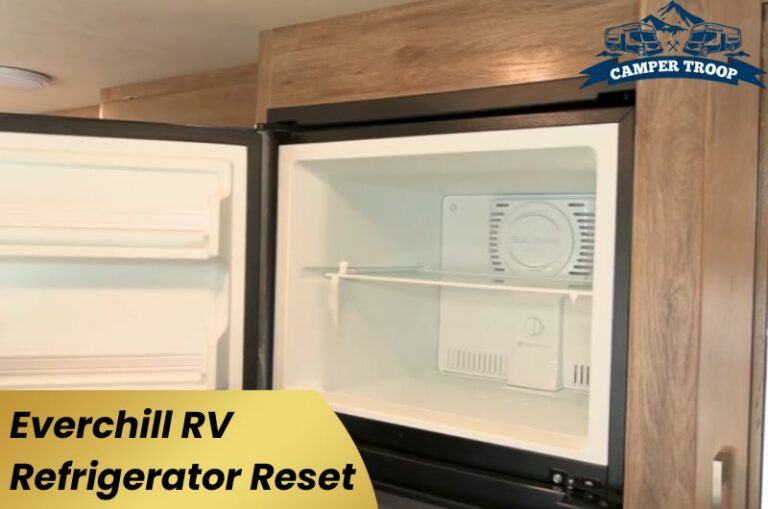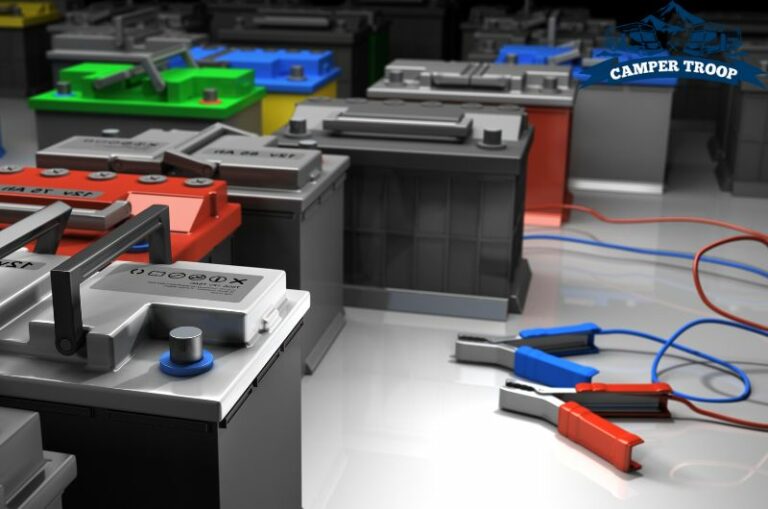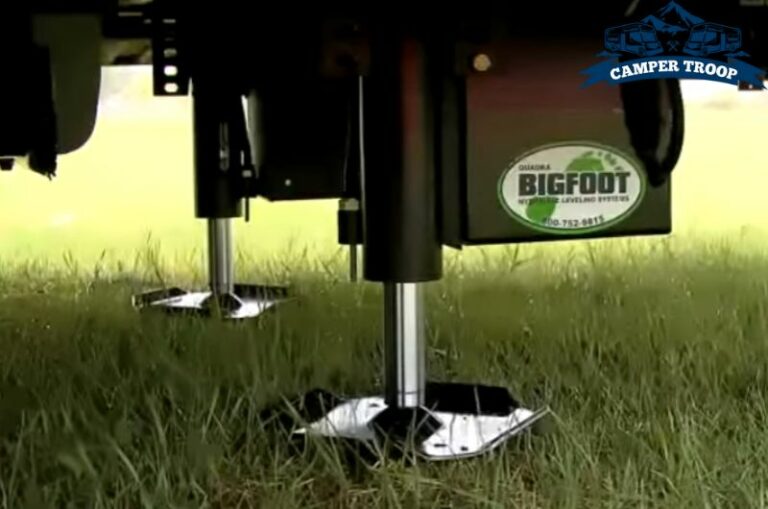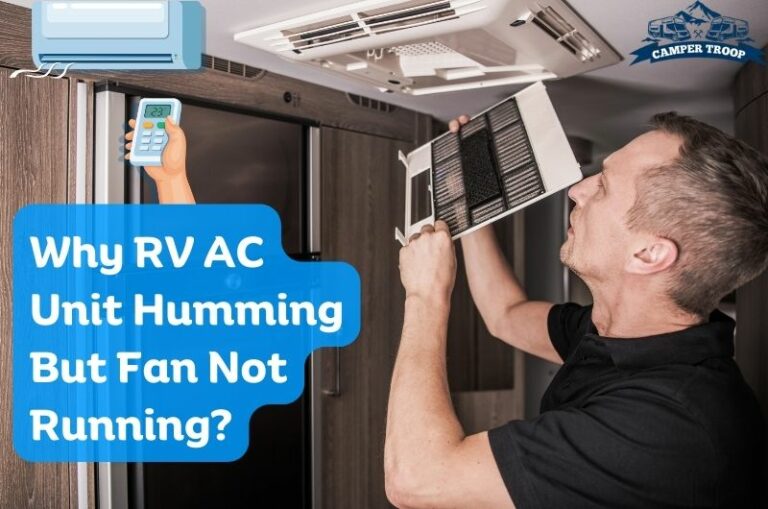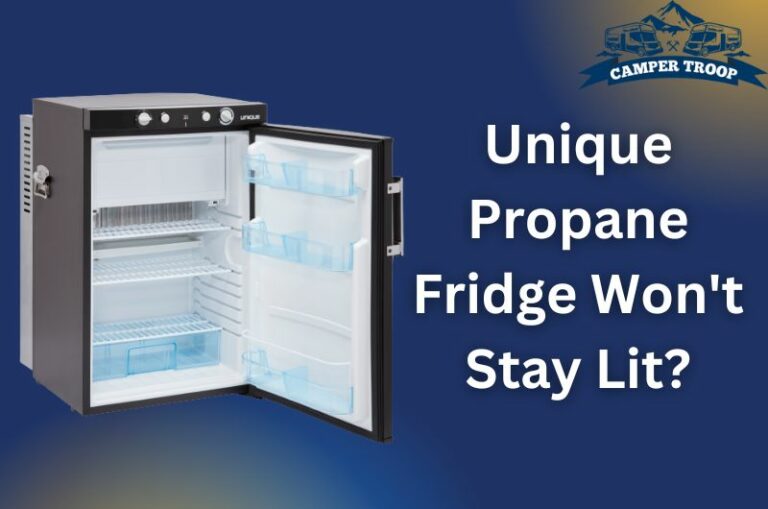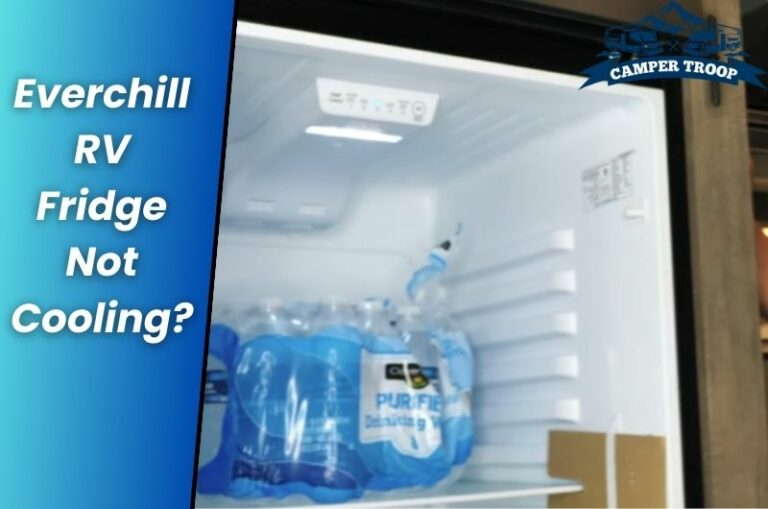5 Common Reasons Why Your RV Water Heater Won’t Shut Off
If it weren’t for RVs, travelers today would still look haggard and homeless like the medieval times. These vehicles provide a bed, kitchen, and warm water for baths to the wandering kind. However, that wonderful experience can lose its appeal when your RV’s water heater malfunctions. Such as staying on when it’s not supposed to.
The commonest reason is a malfunctioning thermostat. Here, your RV water heater isn’t getting the correct information on the temperature. So it doesn’t know when to shut off. Leaks, defective valves, and old tanks can also cause this.
A continuously turned-on RV water heater is bad news for the vehicle’s owner. So, to save your water heater from a total shutdown, resolve the problem as soon as possible.
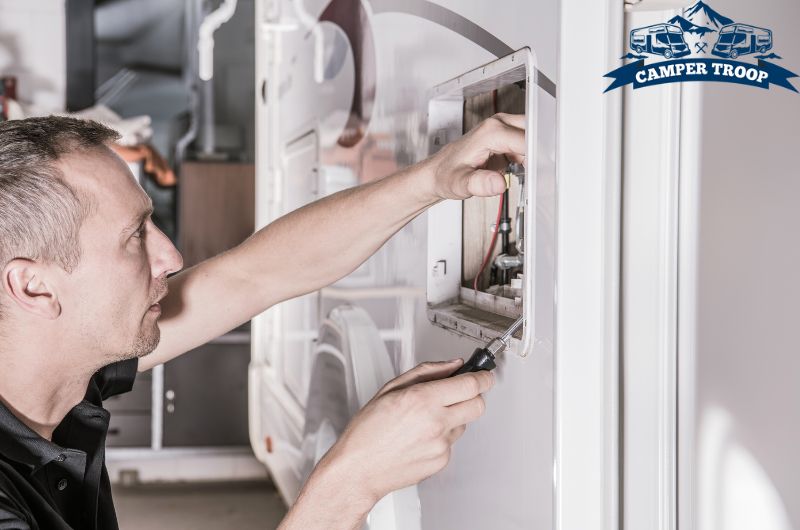
How Does An RV Water Heater Work?
Broadly speaking, RVs have either one of the two kinds of water heaters- gas-powered or electric-powered. In both machines, the mechanism is more or less the same.
The only difference is in the heating apparatus. In gas-powered heaters, it is a gas burner (usually propane). Meanwhile, an electrical heater uses a coil or other element.
A dip tube delivers the cold water to the tank of your RV water heater. Here the heating apparatus (gas burner or electric coil) increases the temperature of the water.
As the universal law for heat is to rise, the warm water reaches the top of the tank. From there, the heat-out pipe collects the heated water and flows it through the minivan’s plumbing.
Each time you open the tap for hot water, a displacement occurs. To make up for it, the dip tube again brings cold water into the tank. Thus the cycle keeps on repeating itself. Users can manipulate the warmth of their water via the thermostat.
The water heater in your RV has specific valves for temperature and pressure relief. They prevent your heater from exploding due to any of those two forces. It also contains a drain valve to manage the sediment build-up. Plus, the tank has the proper insulation to mitigate heat loss.
Read Also: Why Is The Dometic RV Water Heater Not Working On Electric?
5 Possible Reason For RV Water Heater won’t Shut Off:
If your RV water heater refuses to take a break, you will soon face two things. One is increased power bills. Secondly, serious damage to your equipment. Knowing about the reasons can help resolve the situation.
1. Thermostat Troubles
The thermostat serves like a brain to your RV water heater. It collects information about the surrounding temperature. And then sends an appropriate signal to the heater. When the signal says the inside of your minivan is colder than your preset threshold, the water heater will turn on.
So, many ever-active RV heater cases arise from thermostat troubles. There may be an issue with the wiring or internal mechanism. If you have a multi-meter and have prior experience, check for system errors in your thermostat. A bad thermostat requires replacement.
Prices of thermostats are very high these days. Analog ones can cost around 20 dollars on amazon or even less. Meanwhile, digital thermostats with touch pads and wifi can cost well over 200 dollars. The installation labor cost is also something you need to consider if you aren’t handy at RV repairs.
2. Old Tank
Your RV water heater’s tank holds the water and preserves its warmth. The insulation system of the tank helps it do so. However, over time, the tank’s insulation layer can wear off. That means the water in your tank loses heat faster than before. Thus, the heater has no choice but to be always on.
Replacing the tank is a solution in this case. Usually, these cost around 300$. Plus, there will be labor charges if you can’t install it independently.
At this point, you can also decide between putting in a tankless water heater in the RV. Although they will cost you 500-600$, these heaters are more modern and less bulky. FOGATTI, Furrion, Girard, and Suburban are some of the well-known brands for tankless RV water heaters.
Read Also: What Size Socket Is The Best For Water Heater Element
3. Faulty Pressure Relief Valves
The pressure relief valve lets out steam to prevent the pressure in the heater from reaching dangerous levels. However, if the valve malfunctions, it can release too much steam. Thus reducing pressure and temperature below target levels. Faulty relief valves can also directly leak water.
When the internal pressure falls, the water fails to reach its boiling point. So, the heater can’t be turned off. Similarly, the escape of water from the system via the pressure relief valve reduces the overall amount of warm water. As a result, the heater must keep working to reach its target.
Fixing a pressure relief valve requires experience. For instance, you might tighten it too much to prevent leaks. In that case, the built-up pressure in your RV water heater would find no way to escape. And that might cause your heater to explode. So, replace faulty valves and seek professional help to do it.
4. Check Valve Defect
The check valve’s job is to ensure that cold water doesn’t back-flow into the heater. When this valve is broken or damaged, water circulation becomes unregulated. Therefore, the water inside the heater can never reach the target temperature, and it always stays on.
The check valve isn’t an exploding case like the pressure relief valve. So, if you have some prior experience, you can try the repair yourself.
You will unscrew it from the inside of your minivan first. Then pull to remove it from the place and screw in the new valve. Typically, RV water heater valves cost 20-40$.
Read Also: How to Know Your RV Water Heater Switch On or Off?
5. Primary Controller Damage
The primary controller resides inside the RV water heater. It reads the signals that the thermostat sends and reacts accordingly. If this controller is damaged, it won’t be able to respond to the thermostat signals and keep the heater always turned on.
When the primary controller is damaged, your water heater can malfunction reversely. So, instead of always being turned on, it might fail to turn on completely. Therefore, fix it at the soonest possible time.
It’s best to bring in an automotive professional to resolve this issue. Sometimes they might fix it on the spot. Meanwhile, sometimes you may have to change your entire unit. Inspection can cost you about 50-100$.
FAQs.
Have more questions regarding your RV water heater? Well, we are more than happy to answer. Let us ask the first ones on your behalf.
Should I install a tankless RV water heater?
Tankless RV water heaters are great. They don’t need a holding tank, which means an endless hot water supply and less storage space. However, they are expensive, require more power, and encourage water wastage.
What happens if I continue with an RV water heater that always stays on?
First, the heater will use more gas or electricity than normal. Which means you will be losing money in power expenses. Secondly, the stress will severely reduce the lifespan of your heater.
If an RV water heater doesn’t turn off, what are the chances it will explode soon?
There isn’t a direct link between an always-on heater and an explosion. However, when repairing leaks in the pressure relief valve, you might tighten it too much. This can result in pressure build-up inside the heater and subsequent explosion.
Is it safe to repair the RV water heater’s check valve yourself?
Someone can try to repair the check valve if they are familiar with the tools. You also need a basic idea about the water heater’s design. Most importantly, drain the tank before you remove the valve. Otherwise, you will flood your van.
Read Also: All About RV Water Heater (9 Things You Should Know)
Conclusion
RV water heaters make your living experience more homely than anything else. So, it’s okay to be alarmed when it won’t turn off. Although checking a few things before calling an expert is a much-recommended move. That way, you might save a couple of hundred dollars.
Before you inspect your minivan’s heater, turn off the Heater Breaker Switch. And be careful when working around the holding tank. It’s filled with hot water.
Remember, on freezing winter days, the heater desperately tries to cope with the increased demand. So, lowering the preset threshold can help it to turn off.
Read Also: RV Water Heater Anode Rod: Everything You Need To Know

Zayan is an accomplished author and a go-to expert for all things RV and camper-related. With a passion for adventure and a knack for problem-solving, he has spent years exploring the open road and fine-tuning his knowledge of recreational vehicles.
Zayan’s writing is a testament to his expertise, offering readers practical solutions to common RV dilemmas. Whether it’s troubleshooting mechanical issues, optimizing space, or planning the perfect road trip, Zayan’s insightful advice and engaging storytelling make him an invaluable resource for both seasoned travelers and newcomers to the world of RVing.

